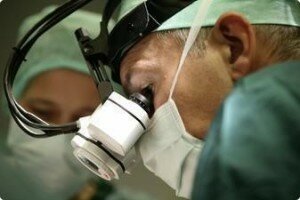 The endorectal advancement flap is another treatment alternative for anal fistulas. Often reserved for patients with complex perianal fistulas, this procedure is performed to cover any fistulous opening with healthy tissue to stop the recurrence. Specific treatment depends on where the fistula lies and which parts of the anal sphincter it crosses.
The endorectal advancement flap is another treatment alternative for anal fistulas. Often reserved for patients with complex perianal fistulas, this procedure is performed to cover any fistulous opening with healthy tissue to stop the recurrence. Specific treatment depends on where the fistula lies and which parts of the anal sphincter it crosses.
Our colorectal surgeries have decades of experience in perianal fistula conditions and treatment options. They have seen hundreds of patients and can provide a knowledge-based perspective on what treatment choice will provide the best resolution. Contact us today at (888) 512-2312 to schedule your initial consultation.
What Is a Complex Fistula?
Complex fistulas are anal fistulas with multiple tracts, involving more than 30-50 percent of the external sphincter and the anterior half of the anus (in women). Complex fistulas also result from radiation or Crohn’s disease as well as someone with compromised sphincter function (i.e. weak anal tone prone to incontinence). These fistulas cannot be treated simply by being laid open.
The Endorectal Advancement Flap Procedure
Endorectal advancement flap is a procedure in which the internal opening of the fistula is identified and a flap of mucosal tissue is cut around the opening. The flap is lifted to expose the fistula, which is then cleaned and the internal opening sewn shut. After cutting the end of the flap on which the internal opening was, the flap is pulled down over the sewn internal opening and sutured in place. The external opening is cleaned and sutured.
Endorectal Advancement Flap FAQs
Q: What are the symptoms associated with a fistula?
A: The following may be symptoms or signs of an anal fistula:
- Recurrent anal abscesses
- Pain and swelling around the anus
- Pain with bowel movements
- Bleeding
- Bloody or foul-smelling drainage (pus) from an opening around the anus. The pain may decrease after the fistula drains.
- Irritation of the skin around the anus due to persistent drainage
- Fever, chills, and a general feeling of fatigue. (However, these may be symptoms of many conditions.)
You should see one of our experienced colorectal surgeons if you notice any of these symptoms.
Q: How will I know if I have a complex fistula?
A: There are various diagnostic tools that our colorectal surgeons can use to determine the level of severity, including anoscopy, proctosigmoidoscopy, colonoscopy, and anal/rectal ultrasound.
Q: Is an endorectal advancement flap a minimally invasive procedure?
A: On the spectrum of surgical procedures used to treat fistulas, this is one of the more invasive surgical options. This is why endorectal advancement flap is typically reserved for more complex anal fistula cases.
Q: Will I need to stay in the hospital?
A: Most fistula surgeries are generally done on an outpatient basis, but very large or deep fistula tunnels may require a short hospital stay. When you visit one of our surgeons to discuss your surgery plan, they can provide you with a better idea as to whether a hospital stay is necessary.
Q: What will be my follow-up care?
A: Following your fistula surgery, your physician may recommend soaking the affected area in a warm bath and taking stool softeners or laxatives for a week. Since you may also experience some pain or discomfort in the area after surgery, your physician will prescribe pain pills. Most fistulas respond well to surgical treatment.
To Learn More About the Endorectal Advancement Flap
Many surgical options are available to you. Schedule an appointment at the Fissure & Fistula Center of Excellence to learn more about the endorectal advancement flap and other fistula repair surgeries. Call our Los Angeles office today at
(888) 512-2312!
For additional information, please read this article on the endoretal advanacement flap on the US National Library of Medicine.
Next, read about the anal fistula plug.









